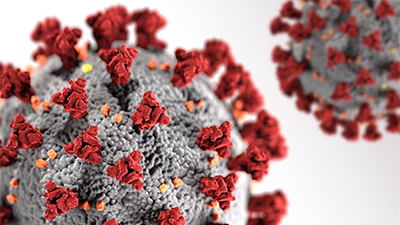Press Release5 Minute ReadNov | 16 | 2020
In South Africa, enlisting local leaders in combating a second COVID-19 surge


Krista Dong, MDFor solutions to be effective locally, it’s important to engage locals in the design process.
Ragon Institute of MGH, MIT and Harvard
BOSTON—In South Africa’s KwaZulu-Natal province, a program of the Ragon Institute of MGH, MIT and Harvard is enlisting leadership within rural communities to counter a second wave of the COVID-19 pandemic.
By delivering COVID-19 workshops for indunas, local leaders who oversee gatherings such as weddings, funerals and traditional events, the Integration of TB in Education and Care for HIV/AIDS program (ITEACH) is promoting best practices for COVID-19 prevention.
During the workshops, indunas gather in small, socially distanced groups, where the ITEACH team covers the basics of COVID-19, from transmission to symptoms and testing. The training calls on the leaders to addresses local challenges such as crowded living conditions, lack of running water, and reliance on public transportation -- all factors that increase risk in rural communities.
The work builds on the community-centered approach ITEACH has used for the past 15 years to improve HIV and TB care and treatment in health districts across the province.
“For solutions to be effective locally, it’s important to engage locals in the design process,” says Krista Dong, MD, a Ragon Institute faculty member who founded and leads the program.
After attending one of the workshops, Qondumuzi Alban Ngcobo, an induna from the Nzondweni area remarked: “This training has opened up my eyes to practical information I can take back to my community.”
While U.S.-based investigators at the Ragon Institute have been focused on developing a COVID-19 vaccine, their colleagues in South Africa have been working to ensure that communities embrace proven prevention measures and will be accepting of a vaccine when it becomes available.
“In my mind, it is always about translation of research, about making a difference in people’s lives,” says Bruce Walker, MD, director of the Ragon Institute. “At the end of the day, we have measures that are nearly as good as a vaccine, like social distancing, hand washing, and mask wearing. If we can get that message across, it can have a huge impact.”
As Sandile Hlongwane, ITEACH’s outreach coordinator, says: “The local leaders are powerful allies in this fight.”
About the Ragon Institute of MGH, MIT and Harvard
The Ragon Institute of MGH, MIT and Harvard was established in 2009 with a gift from the Phillip T. and Susan M. Ragon Foundation, creating a collaborative scientific mission to harness the immune system to combat and cure human diseases. With a focus on HIV and other infectious diseases, the Ragon Institute draws scientists, clinicians and engineers from diverse backgrounds and areas of expertise to study and understand the immune system with the goal of benefiting patients.
For more information, visit www.ragoninstitute.org
